Upon observing the question, a reminder is essential for everyone. According to a colleague’s account, considerable stress was experienced recently, attributed to the company’s year-end performance assessment. Unfortunately, this individual ended up hospitalized with liver cirrhosis due to the habit of staying up late almost every day. This incident serves as a stark reminder of the potential consequences of prolonged stress and irregular sleep patterns.
This case underscores the significant impact staying up late can have on the liver. To minimize the damage caused by late nights, the primary focus should be on protecting the liver and reducing oxidative stress reactions on liver cells. Oxidative stress in the liver can lead to liver cell necrosis and apoptosis, DNA damage, and lipid peroxidation. Taking measures to alleviate these stressors is crucial for maintaining liver health amid demanding work schedules.
In fact, staying up late affects various bodily functions, and the most frightening consequences include disruptions in circadian rhythms, high blood pressure, elevated blood lipids, fatty liver, and so on. These health issues are becoming more prevalent among the young people.
A substantial amount of research indicates a close connection between circadian rhythms and human metabolism. The liver, as a metabolic hub, is particularly influenced by the day-night rhythm. Disturbing the body’s natural rhythm can significantly increase the incidence of metabolic diseases especially related to the liver, such as disorders in sugar metabolism, lipid metabolism, bile acid, and protein metabolism.
In essence, staying up late, disrupting circadian rhythms, does indeed harm the liver, pushing one towards various metabolic diseases.
A study published in 2009 in the “Chronobiology International” journal, titled “Circadian variability of bilirubin in healthy men during normal sleep and after an acute shift of sleep,” found that when the total sleep time remained the same but the sleep time shifted from 23:00-7:00 to 7:00-15:00, there were significant changes in the circadian rhythm and peak levels of bilirubin.
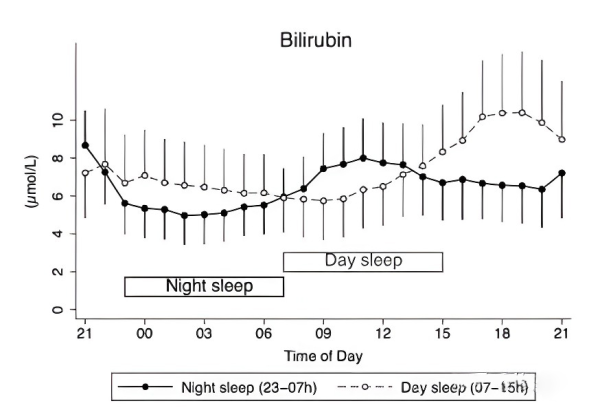
Free radicals are harmful compounds with strong oxidizing properties produced during the body’s oxidative reactions.
Normally, the production and clearance of free radicals in the body are in a dynamic balance. However, prolonged staying up late quickly disrupts this balance, allowing free radicals to rampage in the body. Excessive reactive oxygen species can cause damage to normal cells and tissues, such as brain cells and liver cells.
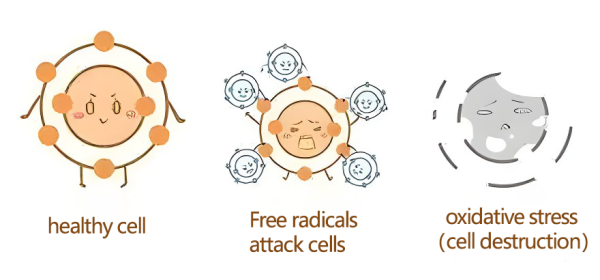
How can the night owl protect their liver cells and avoid oxidative stress reactions?
Certainly, the process involves clearing oxidative by-products, and both Vitamin C and Vitamin E have proven effective in this regard. However, as a night owl, recommending considering a newly discovered coenzyme – PQQ, a novel oxidative-reductive co-factor with a redox capability 5000 times that of Vitamin C.
An experiment conducted in Japan, using 6-OHDA (6-hydroxydopamine) as an oxidative stress inducer, showcased that PQQ demonstrated a superior oxidative-reductive capability compared to both Vitamin E and Vitamin C. This suggests that PQQ may be a promising supplement for those seeking effective protection against oxidative stress, especially individuals with nocturnal work schedules.
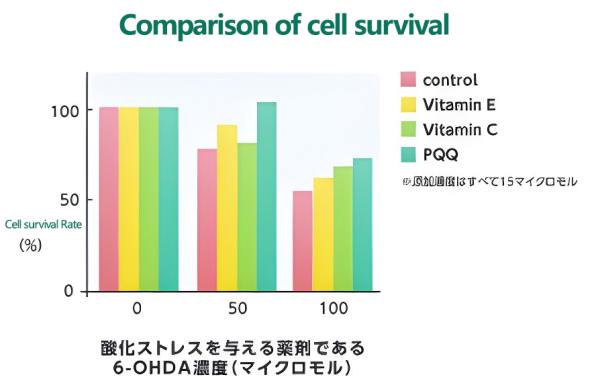
The Liver Cleanse Pills from ESTHELIV were chosen for their notable attributes. This choice was influenced by the inclusion of high-purity PQQ and inositol. Inositol, known for its capacity to penetrate cells, emulsify, and eliminate excess fat from liver cells, works to alleviate the burden on the liver and enhance its function.
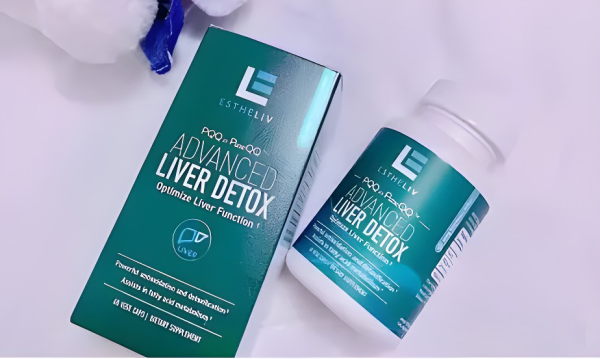
This feature is particularly beneficial for those who, like many, engage in late-night snacking, which can contribute to overwork obesity.
As individuals age, there is a tendency for the waistline to expand, and fatty liver becomes more common. Dealing with mild fatty liver personally, attempts have been made to incorporate exercise. However, staying up late poses a challenge in maintaining a consistent routine. Nevertheless, with the PQQ + inositol formula, there was a notable improvement in the liver index. Of course, giving up midnight snacks was also part of the strategy. In this year’s health examination, the ultrasound revealed no signs of fatty liver, which can be considered somewhat miraculous. The fat-emulsifying ability of inositol is not just talk.
Having taken it consistently for three months now, there’s a noticeable lightness in the body. Even when staying up late, the complexion is no longer as sallow and dull, and sleep has improved compared to before. Following overtime and late nights, the body doesn’t feel as tired, and there’s good energy the next day. The effects are quite obvious! Now, it’s always on the desk.
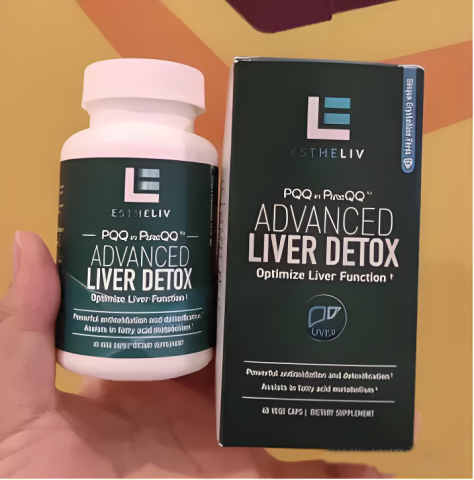
In addition, another obvious problem with staying up late is brain damage.
Under normal circumstances, the brain requires sleep to repair cells responsible for memory. Insufficient rest can result in the death of brain neurons, impacting memory. A significant decline in memory has been observed, with frequent instances of forgetting what was about to be said, leading to embarrassing moments in conversations. The concern is shared by others who have experienced a similar feeling and worry about the potential development of Alzheimer’s.
Given these worries, attention to brain health is deemed essential. Some studies suggest that staying up late can cause damage to brain cells responsible for β-amyloid protein, potentially leading to Alzheimer’s. This information is indeed concerning.
Considering these factors, the idea of trying the PQQ brain nutrient from ESTHELIV arises. It has garnered positive reviews on a specific e-commerce platform, particularly among students preparing for exams. The importance of disease prevention is highlighted, emphasizing the significance of taking proactive measures rather than waiting until one is sick, spending money, and enduring suffering.
However, the most crucial aspect is adjusting one’s own schedule. The plan is to work diligently in the upcoming years, aiming to change jobs as soon as possible. Life is precious, and cultivating a good lifestyle reaps benefits for a lifetime.
Media Contact
Company Name: ESTHELIV,INC
Contact Person: Becko
Email: Send Email
Country: United States
Website: www.estheliv.com
